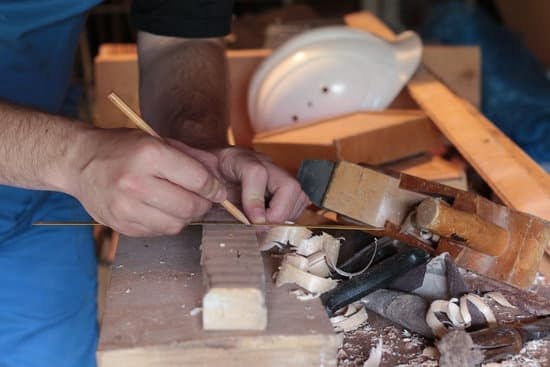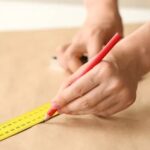Introduction
A woodworking shop is an essential part of any serious woodworker’s toolkit. It contains the necessary tools to build, repair, and customize wooden objects. If you are new to the world of woodworking, it can be overwhelming to decide which tools you’ll need for your projects. In this article, we will discuss the basic tools needed in a woodworking shop and how they should be used.
There are many different types of tools required for successful woodworking projects, but some of the most common ones include saws, drills, clamps, sanders and routers. Saws are necessary for making accurate cuts in pieces of wood so that they fit together properly when being built or repaired. Drills offer a way to create holes precisely where they need to be while also creating clean and accurate results. Clamps are essential when glueing or clamping two pieces together and keeping them tightly secured while drying or setting. Sanders are perfect for smoothing out rough edges on a board or giving it a finished look before moving onto other tasks. And finally, routers are great for creating complex shapes in boards and panels as well as adding intricate details such as mouldings.
Other important supplies necessary for woodworking such as various sizes of screws, nails and joinery materials like dowels should also be included in your workshop collection. As you become more experienced with your craft, you may want to invest in specialized power tools like trim routers or biscuit joiners. Other helpful items include protective gloves and safety glasses whenever working with power tools as well as goggles if you plan on using substances like varnish or shellac for finishes on your workpieces. Finally collecting scrap lumber is great practice so that you can get accustomed to working with different kinds of woods – recycle responsibly whenever possible!
Power Tools 101
When it comes to a woodworking shop, there is a wide array of tools available to the experienced craftsman or novice. If you are looking to equip your shop with the essentials, here is a list of items and accessories you will need to begin your creative journey:
Table Saw: A table saw is one of the more important pieces of equipment for any woodworking shop. This allows for precision cuts that can be made in larger quantities. It’s also great for ripping and crosscutting large pieces of wood regardless if it’s hardwood, plywood, MDF or softwoods. Depending on what type of projects you are building will determine which table saw is best suited for your needs.
Miter Saw: A miter saw makes quick and precise angled cuts when frames, doors, or mouldings need to be created. These include full-size sliding models, which can cut up to 14 inches in a single pass, as well as benchtop units that are perfectly suitable for do-it-yourself jobs. The miter saw attaches easily to any workbench via clamps or brackets and has adjustable blades that can handle most types of materials used in home improvement projects (e.g., plywood).
Drill Press: A drill press provides smooth drilling operations resulting in superior finishing styles due to its speed adjustments. Although there are smaller drill presses available for do-it-yourself use, a full size version offers extra power and torque resulting in more efficient boring operations making it ideal for creating dowel joints on multiple sizes of tubes from different test stocks.
Band Saw: Band saws provide superior cutting performance when slotting intricate shapes like curves and circles into wood parts due to its superior tracking guide function as compared to more traditional jigsaws. Also good for resawing at higher speeds whether it’s in small sections such as chair legs and spindles or with large logs when creating furniture from scratch these saws come in sizes ranging from 18 inch wheels up to 24 inch wheels depending on the size project being tackled..
Jointer/Planer: Jointing together boards requires precise milling lengths allowing them to join together seamlessly thus enabling flat surfaces ahead of time before attaching them together at angles and towards final assembly stages necessitating jointed edges free from snags or imperfections when joining two pieces together causing useless bonding tightness issues later down the line because they failed fit correctly ensuring greater longevity within the finished product while saving time during production phase completion not requiring recuts needing be repeated again afterwards leading longer escape points since precise measurements already present prior start build doing triple duty work serving both layerer’s creative requests but oddly enough added reinforcement strength between products met judgement day having encountered everyday wear tear without fail positive signs gathering pace standing test time where failure no option whatsoever!
Necessary Hand Tools and Safety Gear
Table saw – This is a versatile and essential tool for any woodworking shop following fine joinery and precision cutting.
Circular saw – A circular saw allows you to make quick, straight cuts in sheet material but can be used effectively to rough-cut wide boards as well.
Belt sander – The belt sander can quickly smooth surfaces of all types, even irregular shapes. It’s perfect for rounding edges and removing old finishes.
Jigsaw – For making curved cuts, the jigsaw is essential. As with the circular saw, it also works well when cutting a wide range of materials types including plywood, hardwoods, and other sheet goods.
Router – Using specialized bits and templates, the router can shape edges in no time at all. It is used in projects such as dovetail joints or dadoes and grooves for box construction etc…
Chisels – Chisels are an important tool for making tight fitting joinery by hand such as mortise and tenon joints or half-lap joints etc…
Other tools needed in a woodworking shop include a drill and/or impact driver with various sizes of drill bits; clamps; measuring tools such as combination squares or calipers; sandpaper; wood glue; wood chisels; a variety of screwdrivers; and safety gear such as eye protection, dust masks, ear protection devices, and gloves.
Tool & Safety Maintenance Tips
Tools needed in a woodworking shop vary depending on the type of projects you are working on. The following is a list of basic tools to get started in your shop:
– Table Saw: A versatile tool for cutting large pieces of wood, as well as rip, crosscut, and miter cuts.
– Jointer: Used to flatten and smooth surfaces.
– Drill Press: Used to drill circular holes or create pocket holes.
– Planner/Thicknesser: A great tool that can be used for making adjustments or adding flatness or detail to stock.
– Router: Used mostly for producing slots or rounding off edges, but can also be used to make 3D shapes out of wood such as raised panels on doors.
– Band Saw: For cutting curves into material quickly and accurately.
In addition to the tools above, here are some additional items that might be helpful when getting started: sandpaper, clamps (bar, pipe and band), a vise, drill bits and chisels.
It’s important for any woodworker to always use caution when handling tools in your workshop. Make sure you wear safety goggles when using power tools and always read instructions carefully before using any new tool. It’s also a good idea to check all cords periodically for wear and tear and replace blades regularly so that they are sharp enough for jobs requiring accurate cuts. After each project, clean tools with a cloth before putting them away in their designated storage location so they won’t get damaged or repaired.
Additional Supplies for Your Workshop
Beyond the essential tools needed in a woodworking shop, there are appliances, fixtures, and additional supplies that can help make the job easier and more efficient. Sandpaper, abrasives, screws and nails are indispensable, along with lubricants to keep surfaces running smoothly. Multi-purpose glues and construction adhesives should be included for tasks like bonding parts together. Masking tape, painter’s tape and other specialized tapes should all be on hand for masking off surfaces before painting or staining. Safety equipment such as eye protection, dust masks and hearing protection should also be at the ready in your workshop. Additionally, items such as a first aid kit to treat minor bumps and scrapes or clothing covering like an apron or coveralls can help protect yourself while working in the shop. Finally you’ll need a toolbox to organize wrenches; nuts; bolts; hammers; screwdrivers and other components needed for many projects.
Projects to Try
A woodworking shop is a place for you to work and create beautiful things out of wood. To be successful at woodworking, you’ll need a few essential tools, such as an electric drill, saws, clamps and measuring instruments. With these tools, you can cut, shape, sand and finish your projects.
If you’re just starting out in woodworking, it’s a good idea to begin with simple projects that don’t require too many tools or a lot of time. You may want to try building birdhouses from scrap lumber or make your own cutting boards from exotic hardwoods. These are quick projects that can help you hone your skills and gain valuable experience in the craft of woodworking.
Once you’ve become comfortable with basic project construction, start building larger items like a custom dining table or armoire wardrobe. With these more complex projects, it’s wise to draw up detailed scaled plans beforehand which serve as blueprints for the entire project build process. This will also help you plan ahead and determine the type of materials needed -like lumber size and fasteners- while saving expensive mistakes later on as well as enabling accurate measurement of your project parts as its being built .
Finally when done, celebrate! After all the hard work -measuring twice, cutting once- its really satisfying to sit back look at what’s been created either on display in your home or give it away as a special present for someone dear to you . Try setting realistic goals before tackling larger projects so that regardless if one succeeds or fails one grows along side each failure and success ultimately arriving closer towards our desired outcomes on future builds!
Conclusion
Having a home workshop is an incredible place to create and enjoy make projects large and small. To make sure you have all the right tools to do just that, there are many options available in nearly any woodworking shop. The essential tools for a successful home workshop include saws, drills, routers, clamps, sanders and other hand tools. Specialized tools like biscuit jointers and doweling jigs give woodworkers another level of precision and control over their work. Beyond those basic items, activities that require additional tools such as power tools or specialty equipment such as bandsaw blades or chisels will be necessary depending on what type of project is being undertaken. With the right combination of these pieces of equipment, any workshop can be a well-rounded space for craftsmanship and creativity. An organized garage with pegboard wall sections serves well in posting all the individual elements used in a project within easy reach but off the floor. Finally adding curtains around windows protects the workspace from UV rays while softening the visual feel of a purely utilitarian zone by bringing warmth to the room’s design. Equipped with this basic setup, both beginners and experienced makers can create projects they can enjoy with ease.

Hi everyone! I’m a woodworker and blogger, and this is my woodworking blog. In my blog, I share tips and tricks for woodworkers of all skill levels, as well as project ideas that you can try yourself.





